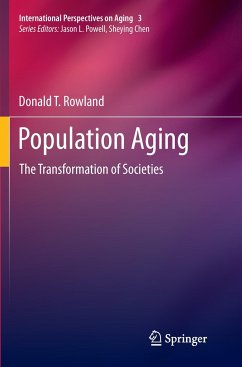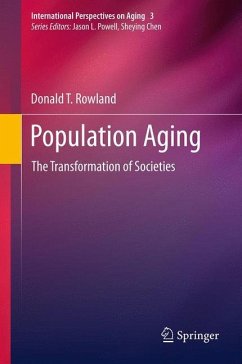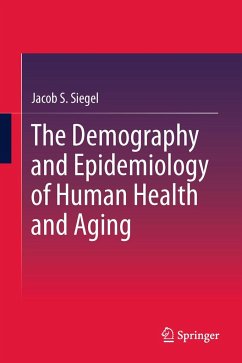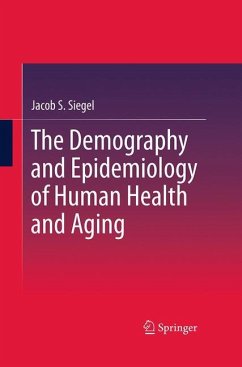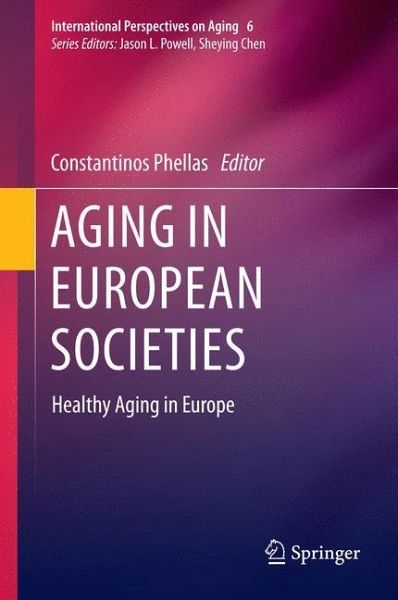
Aging in European Societies
Healthy Aging in Europe
Herausgegeben: Phellas, Constantinos

PAYBACK Punkte
39 °P sammeln!
Between longer life expectancies and declining birth rates, Europe's elder population is growing into a sizable minority with considerable impact on nations, health systems, and economies-in other words, global implications as well as local and regional ones. Those investing in the health of older adults need a double perspective: the social and clinical complexity of aging and the larger forces shaping these experiences.
Aging in European Societies examines aging trends across the continent, analyzing individual and collective variables that affect the lives of older adults, and drawing salient comparisons with other parts of the world. An interdisciplinary panel of experts provides theory, research, and empirical findings (with examples from the UK, Cyprus, Sweden, and others) in key areas such as family and social supports, physical and cognitive changes, dependence and autonomy issues, and living arrangements. The book's wide-net approach offers insights into not only aging, but aging well. And of particular importance, it details approaches to defining and measuring the elusive but crucial concept, quality of life. Included in the coverage:
- The potential for technology to improve elders' quality of life.
- Dementia and quality of life issues.
- Changes in functional ability with aging and over time.
- Family networks and supports in older age.
- Factors influencing inequalities in quality of life.
- Late-life learning in the E.U.
Gerontologists, sociologists, health and cross-cultural psychologists, and public health policymakers will welcome Aging in European Societies as a springboard toward continued discussion, new directions for research, and improvements in policy and practice.
Aging in European Societies examines aging trends across the continent, analyzing individual and collective variables that affect the lives of older adults, and drawing salient comparisons with other parts of the world. An interdisciplinary panel of experts provides theory, research, and empirical findings (with examples from the UK, Cyprus, Sweden, and others) in key areas such as family and social supports, physical and cognitive changes, dependence and autonomy issues, and living arrangements. The book's wide-net approach offers insights into not only aging, but aging well. And of particular importance, it details approaches to defining and measuring the elusive but crucial concept, quality of life. Included in the coverage:
- The potential for technology to improve elders' quality of life.
- Dementia and quality of life issues.
- Changes in functional ability with aging and over time.
- Family networks and supports in older age.
- Factors influencing inequalities in quality of life.
- Late-life learning in the E.U.
Gerontologists, sociologists, health and cross-cultural psychologists, and public health policymakers will welcome Aging in European Societies as a springboard toward continued discussion, new directions for research, and improvements in policy and practice.








